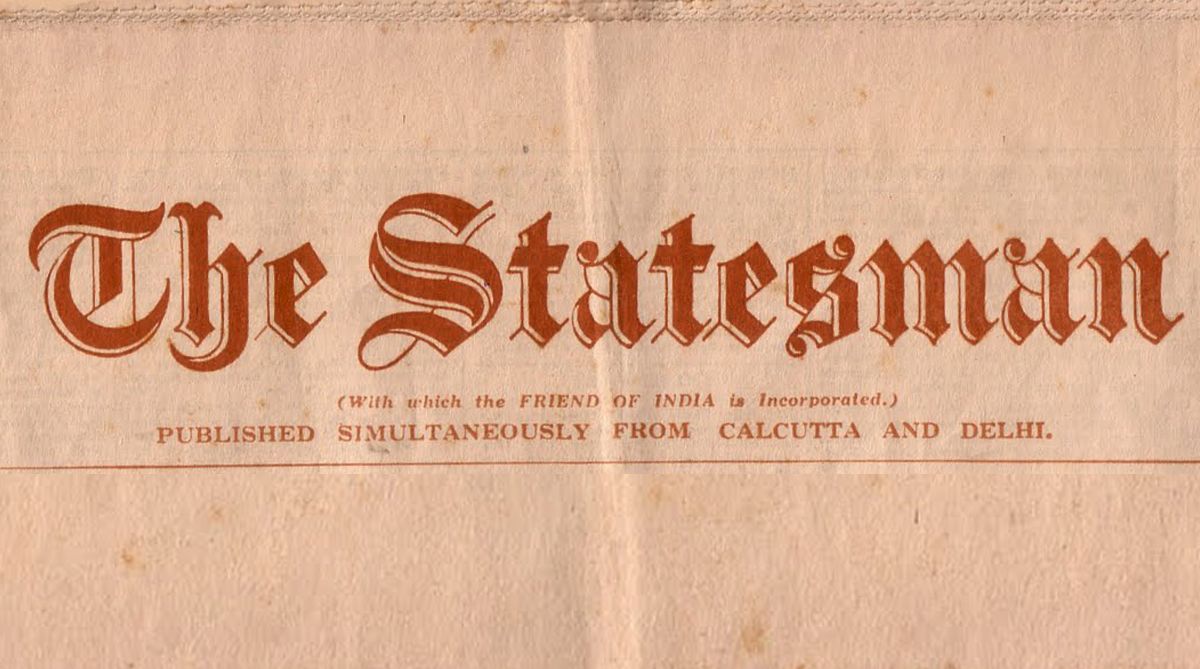A New Day, A New Dawn
There is a surprise for the readers. A special Poila Boishakh gift from none other than West Bengal chief minister Mamata Banerjee. Who has written a piece for this special edition.
On this day a century ago, these were some of the news items The Statesman readers got to read about India and the world.

OCCASIONAL NOTE
The Dutch Bentincks, with one of whom the Kaiser proposes to stay at Amerongen and with another of whom the Crown Prince apparently proposed to stay, have curiously intimate connections both with England and Germany. The Dutch family are descended from a brother of the Duke of Portland who crossed to England with the Duke of Orange and whose descendants have included the famous Liberal Governor-General of India.
Several members of the family, like the present Count’s uncle, Count Henry – who was very well known in the West End of London until recently – have become British subjects. One of the present Count’s cousins is in the Coldstream Guards and another is in the British Diplomatic Service. On the other hand, the head of the Dutch family is a Count of Waldeck in the Holy Roman Empire. As such one of his ancestors sold to Prussia – not so very long ago, although the transaction sounds old-fashioned to Englishmen – the entire governance of that little German State and with it the right to exercise in the German Imperial Bundesrath the vote to which Waldeck is entitled. One of the Count’s sons is in the Prussian Guards – which perhaps explains why the Crown Prince is, or was, making for Middachten – and at least one of his Dutch cousins is serving in the German Navy.
Advertisement
Apparently those branches of the family which remain in Holland and are subjected to Dutch aristocratic and court influences became infected by the German spirit which, since the marriage of the Queen of the Netherlands, has been almost paramount in polite circles in Holland.
RAILWAY WORKERS STRIKE AT KHARAGPUR
The men of the locomotive workshop have not yet returned and the situation does not seem to be improving. Most of the men who absented themselves from the station yard and the runningshed, out of the total strength of about 1,450, are reported to have come back to their duties, only about 200 being out till yesterday. Out of 75 strikers in the carriage examiner’s staff, consisting of about 150 men, some 50 men have resumed their work. Almost all having resumed their work, the workshop of the Engineering department is in full swing now. The running of the goods trains, which had to be suspended, has been restored. All the clerks employed in the offices of the chief mechanical engineer, assistant stores controller, as well as the district offices, have already resumed their duties.
FOOD SUPPLIES
In the House of Commons, during the debate on the vote of credit, Mr. Clynes said that the control of supplies and of prices would have to be continued until more normal times. In conjunction with the United States an interAllied organisation had, said Mr. Clynes, been established to assist the starving enemy. The Allies and neutrals had the first claim, but victory imposed on us the obligation of supplying the immediate needs of the beaten foe. Mr. Astor, Secretary of the Food Ministry, said that the danger of the American Meat Trust was far more serious than was realised. There was a danger to all importing countries. It had branches in the Argentine, Australia, and New Zealand, and controlled fifty per cent of the available importable world’s supplies of meat.
CRIME IN BOMBAY
The annual report for 1917 on the Bombay Police is published. It shows that the total number of cognisable and non-cognisable offences reported during the year was 1,12,308 as against 1,17,862 in 1916. The outstanding features of the history of crime for the year under report are found in the increase of cognisable crimes, serious and ordinary, both as regards reported and “true” crime and in respect of excluded, pending and undetected cases. The net increase in reported crime is mainly attributed to the abnormal conditions brought about by the general rise in prices. The number of house-breakings during the year is larger than in any of the four previous years.
DUTCH SOCIALISTS
In the course of his speech the Dutch Socialist leader Troelstra, condemning militarist influence, said that it emanated from the Queen and her entourage, which was antagonistic to the spirit of the people. His party demanded the socialisation of labour and would not allow this historic moment to pass through fear of violence. The Government was unable to rely on the army or on the majority of the police. “We aspire,” he said, “to power because we are indispensable to the realisation of the social progress rendered necessary by the downfall of militarism.”
Advertisement